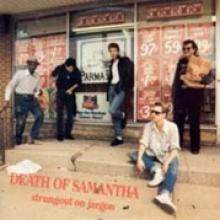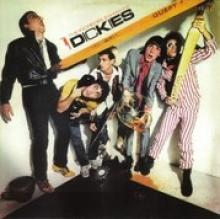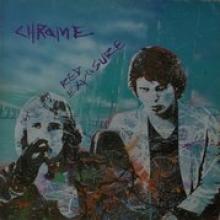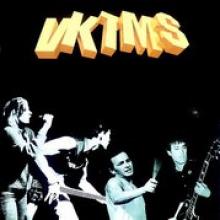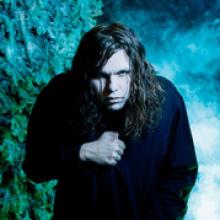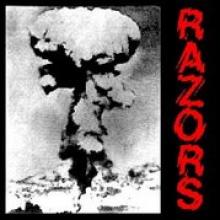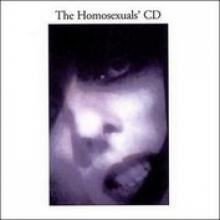Death of Samantha: Definitely Cleveland
After the Dead Boys left town, the Pagans kinda started to suck and thrashy punk and hardcore started to litter the Clevo scene, there were only a handful of rock dudes that attempted to keep it true. The folks that made up the initial line up of Death of Samantha (the aforementioned Petkovic, David James, Steve Eierdam and eventually Doug Gillard) comprised a hefty percentage of that number. But in the wake of all that rock which descended upon unsuspecting audiences during the ‘70s, Death of Samantha didn’t have a proper scene to work its way into. Of course, the fact that Petkovic made use of a Morrison-come-Lux Interior vocal style probably didn’t ingratiate the band to a slew of folks. Remember, it was new wave time. And anything that seemed even remotely tangential to straight punk was deemed obscene trash. Thanks Tipper.
The band released a few singles – the liner notes of one being penned by Byron Coley – to relatively little fanfare. And upon reaching some deal with Homestead, Death of Samantha released Strungout on Jargon. That’s an obvious smack reference. And no, I have no idea why there’re so many opiates in and around Clevo, that’s just how it is. Visit the ‘revitalized’ Flats and you might get it.
The nine song, thirty minute album wasn’t short on personality with Petkovic snarling his way through each song as he recites obtuse lines about addiction, problematic relationships and sugar. But in a surprisingly sharp succession of tunes, the entirety of Strungout on Jargon possesses only one lull. And for what amounts to a post-punk effort from ’84, that’s astounding.
The lead off track, “Coca Cola & Licorice,” is an aural homage to the Ubus, although vocally Petkovic sounds closest to Interior here. But the heavy ass bass line and screeching clarinet that the song sports could probably get any track over. It’s an odd offering for a number of reasons, but seeing as the band comes off as a relatively serious group, the tongue and cheek intro is a welcomed dismissal of that perception. Elsewhere, on another food inspired track – “Ham & Eggs 99c” – Death of Samantha critiques the general culture. It all amounts to a quick stab at the band’s surroundings. But I guess just a few years on, Petkovic would pull a pay check to write these ideas out in prose. It’s good to hear it all with a back beat, though.
